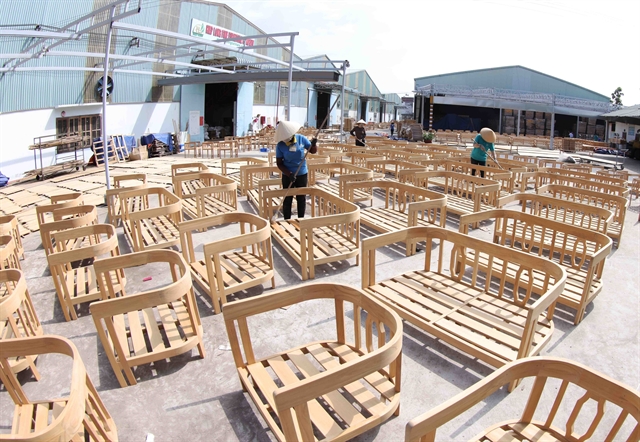VN, India explore opportunities to boost cooperation in furniture and wood industry
Việt Nam and India are seeking to strengthen cooperation in the furniture and wood industry, as both countries look to leverage their respective advantages to boost bilateral trade.

HÀ NỘI — Việt Nam and India are seeking to strengthen cooperation in the furniture and wood industry as both countries look to leverage their respective advantages to boost bilateral trade, an online seminar held by the Việt Nam Trade Office in India heard on Wednesday.
Việt Nam’s Trade Counselor in India, Bùi Trung Thướng said that with while traditional export market of Việt Nam faces headwinds, India stands out as one of the most dynamic markets in the world, with an estimated value of US$40 billion in 2025 and double-digit growth expected through 2030.
Việt Nam is the world’s second-largest exporter of wood and furniture products with advantages in production and processing capacity, together with a skilled workforce.
“Connecting Việt Nam’s manufacturing strengths with India’s immense market is a win-win scenario,” Thướng said, adding that Việt Nam can expand, while India can benefit from high-quality and competitive prices.
There is also huge potential for cooperation in founding joint venture, technology sharing, sustainable production and development of eco-friendly products.
According to General Director of Worldex India, Rajesh Bhagat, the country is a rapidly growing market, driven by infrastructure expansion, urbanisation and rising middle-class incomes.
India offers a vast and rapidly growing market, driven by infrastructure expansion, urbanisation and rising middle-class incomes. Underlining India’s booming demand for furnishings, he urged Vietnamese firms to consider enhancing long-term collaboration.
Vice President of the Việt Nam Timber and Forest Products Association, Ngô Sỹ Hoài, said Việt Nam has exporting advantages in India, including the ASEAN–India Free Trade Agreement as well as alignment in consumer preferences.
However, he also cited challenges such as trade barriers, differences in technical standards, logistical costs and competition from China and other ASEAN countries.
Hoài urged a Memorandum of Understanding to be signed between the two sides to facilitate trade and information exchange. — VNS





